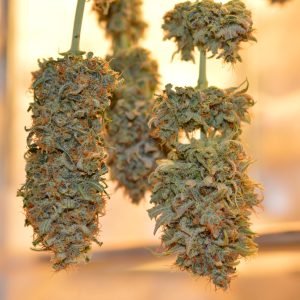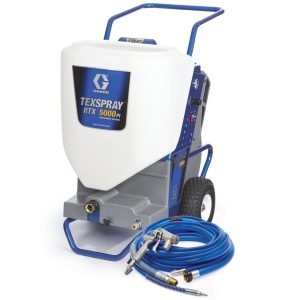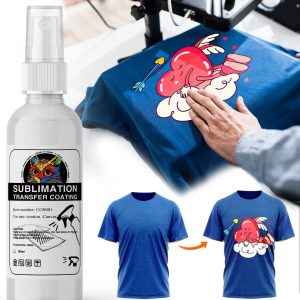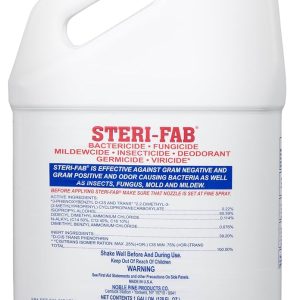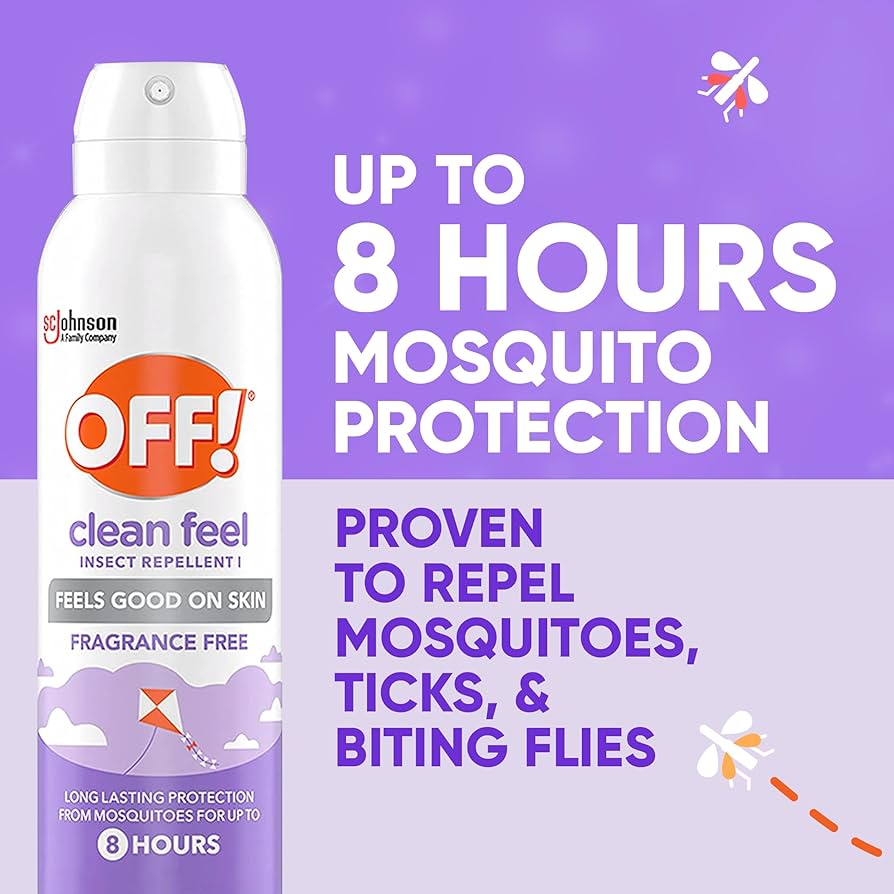
When summer arrives and outdoor activities beckon, nothing can ruin your fun faster than swarms of hungry mosquitoes. Whether you’re camping, hiking, gardening, or simply enjoying a backyard barbecue, these persistent pests can turn any pleasant outdoor experience into an itchy nightmare. This is where a reliable bug off mosquito spray becomes your best ally in the battle against biting insects.
Mosquitoes aren’t just annoying; they’re also potential carriers of serious diseases like Zika virus, West Nile virus, dengue fever, and malaria. Protecting yourself with an effective mosquito repellent isn’t just about comfort—it’s about safeguarding your health and that of your family. Understanding how to choose, apply, and use bug off mosquito spray properly can make the difference between enjoying your time outdoors and spending it swatting away unwelcome visitors.
Understanding How Bug Off Mosquito Spray Works
Bug off mosquito spray functions by creating a chemical barrier on your skin that mosquitoes find unpleasant or confusing. The most effective repellents contain active ingredients approved by both the Centers for Disease Control and Prevention (CDC) and Environmental Protection Agency (EPA): DEET, picaridin, oil of lemon eucalyptus, p-Menthane-3,8-diol, IR3535 and 2-Undecanone. These compounds work by interfering with the mosquito’s ability to detect the carbon dioxide, lactic acid, and other chemical signals that human bodies naturally emit.
When you apply mosquito repellent spray to your skin, the active ingredients create an invisible shield that either masks your scent from mosquitoes or repels them through smell or taste. Different active ingredients work through various mechanisms, but all EPA-approved formulations have undergone rigorous testing to ensure both safety and effectiveness. The concentration of active ingredients directly correlates with the duration of protection, with higher concentrations typically providing longer-lasting defense against mosquito bites.
Modern bug off mosquito spray formulations have evolved significantly from the oily, strong-smelling repellents of the past. Today’s products offer improved textures, reduced odors, and enhanced comfort while maintaining superior protective qualities. Many brands now offer alcohol-based formulations that dry quickly, leaving behind minimal residue while providing maximum protection against a variety of biting insects.
Active Ingredients in Effective Bug Off Mosquito Spray
DEET: The Gold Standard
DEET (N,N-diethyl-m-toluamide) remains the most widely recognized and researched active ingredient in bug off mosquito spray. Most people use bug sprays with DEET because they’re the most effective, as it works against the widest variety of insects. DEET-based repellents are available in concentrations ranging from 5% to 100%, though products containing 10% to 35% DEET provide adequate protection for most outdoor activities.
The effectiveness of DEET isn’t just about concentration—it’s about duration of protection. A 10% DEET formulation typically provides 2-3 hours of protection, while 30% DEET can offer 6-8 hours of mosquito-free outdoor time. Products with concentrations higher than about 50% do not offer significantly greater protection, with 50% DEET providing about 4 hours of protection against mosquitoes, but increasing the concentration to 100% gives only about one extra hour of protection.
| DEET Concentration | Protection Duration | Best Uses |
|---|---|---|
| 5-10% | 2-3 hours | Short outdoor activities, children |
| 20-30% | 4-6 hours | Extended outdoor time, hiking |
| 50%+ | 6-8 hours | All-day outdoor activities, high-risk areas |
Picaridin: The Gentle Alternative
Products containing the active ingredient picaridin are as effective as DEET, making it an excellent choice for those seeking powerful protection without the strong odor or greasy feel associated with some DEET formulations. Picaridin-based bug off mosquito spray offers several advantages, including a virtually odorless application, non-greasy texture, and reduced likelihood of skin irritation.
Picaridin formulations with 20% concentration provide effective and proven protection against mosquitoes for up to 8 hours, making them ideal for extended outdoor activities. Picaridin doesn’t damage synthetic fabrics or plastic equipment, unlike some DEET formulations, making it particularly suitable for outdoor enthusiasts who use technical gear.
Oil of Lemon Eucalyptus (OLE)
For those preferring plant-based protection, oil of lemon eucalyptus represents the most effective natural alternative in mosquito repellent spray. Some repellents with 30 percent oil of lemon eucalyptus (OLE) provide long-lasting protection, though generally not as extended as synthetic alternatives. OLE works differently from synthetic repellents, creating a scent barrier that mosquitoes actively avoid.
The synthetic derivative of OLE, p-Menthane-3,8-diol (PMD), offers more consistent results than pure plant extracts. While natural ingredients appeal to many users, it’s important to understand that bug off mosquito spray containing OLE typically requires more frequent reapplication compared to DEET or picaridin-based products.
Proper Application Techniques for Bug Off Mosquito Spray
Pre-Application Preparation
Before applying any bug off mosquito spray, proper preparation ensures maximum effectiveness and safety. Start by reading the product label thoroughly, paying attention to concentration levels, application instructions, and any specific warnings. Choose the right formulation for your activity—aerosol sprays work well for quick, even coverage, while pump sprays offer more controlled application and reduce inhalation risks.
Clean skin provides the best foundation for mosquito repellent spray application. Remove any existing lotions, sunscreens, or other topical products that might interfere with the repellent’s adherence to your skin. If you plan to use both sunscreen and insect repellent, apply sunscreen first, allow it to absorb completely (usually 15-20 minutes), then apply the repellent as the final layer.
Application Best Practices
When using sprays, do not spray directly into face; spray on hands first and then apply to face, ensuring you avoid the eyes, mouth, and nose areas. Apply bug off mosquito spray evenly to all exposed skin surfaces, paying particular attention to ankles, wrists, and the neckline where mosquitoes commonly target. Don’t forget often-overlooked areas like behind the ears, between fingers, and the tops of feet.
For clothing application, spray mosquito repellent spray onto outer garments, focusing on cuffs, collars, and other openings where mosquitoes might find access to skin. Do not use under clothing and do not apply near eyes and mouth, applying sparingly around ears. Allow the repellent to dry completely before putting on additional clothing layers or gear.
Dosage and Coverage Guidelines
- Light Activity (2-4 hours outdoors): Apply bug off mosquito spray to exposed skin areas with light, even coverage
- Moderate Activity (4-6 hours outdoors): Ensure complete coverage of all exposed skin, including often-forgotten areas
- Extended Activity (6+ hours outdoors): Apply thoroughly and plan for reapplication according to product guidelines
Avoid over-application, which doesn’t increase effectiveness but may cause skin irritation or waste product. A thin, even layer provides optimal protection while minimizing potential side effects.
Safety Guidelines When Using Bug Off Mosquito Spray
General Safety Precautions
Safety should always be your top priority when using any bug off mosquito spray. Never use repellents over cuts, wounds, or irritated skin, and do not spray in enclosed areas. Always wash your hands thoroughly after application, especially before handling food or touching your face. Remove repellent with soap and water when you return indoors or no longer need protection.
Look for a lotion or pump spray instead of an aerosol, so you don’t breathe in as much of the chemical, particularly important for those with respiratory sensitivities. When using aerosol formulations, apply outdoors or in well-ventilated areas to minimize inhalation risks.
Special Considerations for Children
Children require extra precautions when using mosquito repellent spray. Be sure to avoid children’s hands because they tend to stick their fingers into their eyes and mouth, and never spray directly onto their skin. Instead, apply the repellent to your hands first, then spread it evenly on the child’s exposed skin, avoiding their hands, eyes, mouth, and any cuts or irritated areas.
Age-Appropriate Guidelines:
- Under 2 months: Avoid all repellents; use physical barriers instead
- 2 months to 2 years: Use minimal amounts of low-concentration DEET (10% or less)
- Over 2 years: Can use adult formulations with proper supervision and application
For families seeking gentler options, picaridin-based bug off mosquito spray often causes less skin irritation than DEET formulations while providing comparable protection.
Skin Sensitivity and Allergic Reactions
Before using any new bug off mosquito spray, perform a patch test on a small area of skin to check for allergic reactions or sensitivity. Apply a small amount to your inner forearm, wait 24 hours, and watch for any redness, itching, or irritation. If you experience any adverse reactions, discontinue use immediately and consider alternative active ingredients.
Common signs of repellent sensitivity include skin redness, burning sensations, rash development, or unusual itching. Those with sensitive skin should consider picaridin-based formulations, which generally cause fewer reactions than DEET products while maintaining effectiveness.
Choosing the Right Bug Off Mosquito Spray for Your Needs
Activity-Based Selection
Different outdoor activities require different approaches to mosquito repellent spray selection. For casual backyard activities lasting 2-3 hours, a lower-concentration DEET or picaridin formula provides adequate protection without over-treating your skin. Extended hiking, camping, or fishing expeditions benefit from higher-concentration formulations that provide 6-8 hours of continuous protection.
Activity-Specific Recommendations:
- Gardening/Yard Work: 10-20% DEET or picaridin, 3-4 hour protection
- Hiking/Camping: 20-30% DEET or picaridin, 6-8 hour protection
- Fishing/Water Activities: Water-resistant formulations with 20-30% active ingredients
- Children’s Outdoor Play: 10% DEET or picaridin-based gentle formulations
Environmental Considerations
Your geographic location and local mosquito population density should influence your bug off mosquito spray selection. Areas with disease-carrying mosquitoes, such as regions with Zika or West Nile virus activity, warrant stronger, longer-lasting repellents. Consult local health departments or CDC guidelines for area-specific recommendations.
Tropical and subtropical climates typically require more robust protection due to higher mosquito populations and extended active seasons. In these environments, choose mosquito repellent spray with proven effectiveness against Aedes aegypti and Aedes albopictus mosquitoes, which are primary vectors for tropical diseases.
Travel Considerations
When traveling, especially internationally, research your destination’s specific mosquito-borne disease risks and pack appropriate bug off mosquito spray accordingly. Some countries have different regulations regarding repellent concentrations or active ingredients, so verify that your chosen products are acceptable at your destination.
For air travel, remember that can you bring spray sunscreen on plane guidelines also apply to insect repellents. Pack repellents in containers under 3.4 ounces for carry-on luggage, or place larger containers in checked baggage to avoid security issues.
Maximizing Effectiveness of Your Bug Off Mosquito Spray
Complementary Protection Strategies
While bug off mosquito spray provides excellent personal protection, combining it with other mosquito control methods creates a comprehensive defense system. Wear long-sleeved shirts and long pants when possible, especially during peak mosquito activity times (dawn and dusk). Choose light-colored clothing, as mosquitoes are more attracted to dark colors.
Environmental Protection Methods:
- Remove standing water from your property (flower pots, gutters, buckets)
- Use fans on patios and outdoor seating areas (mosquitoes are weak fliers)
- Plant mosquito-repelling herbs like basil, lavender, and marigolds
- Install or repair window and door screens
- Use outdoor lighting that doesn’t attract insects (yellow or LED lights)
Timing and Reapplication
Understanding when and how often to reapply mosquito repellent spray ensures continuous protection throughout your outdoor activities. Most formulations provide protection for 4-8 hours under normal conditions, but sweating, swimming, or wiping the treated area can reduce effectiveness and require earlier reapplication.
Monitor your protection levels by paying attention to mosquito activity around you. If you notice increased mosquito interest or bites despite recent application, it’s time to reapply your bug off mosquito spray. Environmental factors like high humidity, rain, or excessive sweating can reduce the effective duration of any repellent.
Storage and Product Longevity
Proper storage extends the life and effectiveness of your bug off mosquito spray. Store repellents in cool, dry places away from direct sunlight and extreme temperatures. Most products maintain effectiveness for 2-3 years when stored properly, though you should always check expiration dates before use.
Avoid storing mosquito repellent spray in vehicles during hot weather, as extreme temperatures can break down active ingredients and reduce effectiveness. Keep products in their original containers with labels intact to ensure you always have access to important safety and application information.
Common Myths and Misconceptions About Bug Off Mosquito Spray
Myth: Natural Always Means Safer
While many people prefer natural ingredients in their bug off mosquito spray, it’s important to understand that natural doesn’t automatically mean safer or more effective. Most plant-oil-based products containing citronella oil, peppermint oil, soybean oil, or others have performed poorly in scientific testing compared to EPA-approved synthetic alternatives.
Natural repellents often require more frequent application and may cause skin reactions in sensitive individuals. Essential oil-based products can be particularly problematic for people with plant allergies or sensitive skin. When choosing natural alternatives, look for products containing oil of lemon eucalyptus or its synthetic derivative PMD, which have demonstrated measurable effectiveness.
Myth: Higher Concentration Always Means Better Protection
Concentration affects duration, not strength of protection. A bug off mosquito spray with 30% DEET doesn’t repel mosquitoes more effectively than one with 15% DEET—it simply lasts longer before requiring reapplication. Understanding this distinction helps you choose products appropriate for your planned activity duration without over-treating your skin.
Myth: Repellents Attract More Bugs After Wearing Off
Some people believe that mosquito repellent spray actually attracts more mosquitoes once it loses effectiveness, but this is false. You may notice increased mosquito attention after repellent wears off simply because you’ve become accustomed to being bite-free and are more aware of mosquito activity when protection ends.
Health Benefits of Using Bug Off Mosquito Spray
Disease Prevention
The primary health benefit of using bug off mosquito spray extends far beyond avoiding itchy bites. Mosquitoes transmit numerous serious diseases, including malaria, dengue fever, Zika virus, West Nile virus, yellow fever, and chikungunya. Effective repellent use significantly reduces your risk of exposure to these potentially life-threatening illnesses.
According to health experts, proper use of EPA-approved mosquito repellent spray can reduce mosquito bite rates by 85-95%, providing substantial protection against disease transmission. This protection is particularly crucial for pregnant women, young children, elderly individuals, and those with compromised immune systems who may be more susceptible to severe complications from mosquito-borne diseases.
Improved Outdoor Experience Quality
Beyond disease prevention, bug off mosquito spray dramatically improves the quality of outdoor experiences. Effective protection allows you to focus on activities like hiking, camping, gardening, or outdoor sports without constant distraction from biting insects. This improved comfort encourages more outdoor physical activity, contributing to overall health and wellness.
Studies show that people who use effective insect repellents spend more time engaged in outdoor activities, leading to increased vitamin D production, improved mental health, and better physical fitness. The psychological benefits of worry-free outdoor enjoyment shouldn’t be underestimated in our increasingly indoor-focused society.
Reduced Secondary Health Issues
Mosquito bites often lead to scratching, which can cause secondary bacterial infections, scarring, and prolonged skin irritation. By preventing bites with bug off mosquito spray, you avoid these secondary complications and maintain healthier skin. This is particularly important for children, who are more likely to scratch bites aggressively and develop infections.
Environmental Impact and Responsible Use
Eco-Friendly Considerations
While protecting yourself from mosquito-borne diseases is essential, responsible use of bug off mosquito spray includes considering environmental impact. Choose products from manufacturers that prioritize environmental responsibility and avoid over-application that can lead to unnecessary chemical exposure to beneficial insects and wildlife.
The most widely used residential mosquito sprays are also highly toxic to native pollinators, highlighting the importance of targeted, personal protection over broad-spectrum environmental spraying. Using personal mosquito repellent spray rather than area-wide treatments helps protect beneficial insects while providing necessary human protection.
Sustainable Practices
Implement sustainable practices when using bug off mosquito spray by choosing concentrated formulations that reduce packaging waste and selecting products with minimal environmental persistence. Look for brands that use recyclable packaging and support mosquito control research focused on species-specific targeting rather than broad-spectrum approaches.
Consider combining personal repellent use with habitat modification strategies that reduce mosquito breeding sites naturally. This integrated approach reduces reliance on chemical controls while maintaining effective personal protection through targeted mosquito repellent spray use.
Frequently Asked Questions About Bug Off Mosquito Spray
How long does bug off mosquito spray last on skin?
The duration of protection from bug off mosquito spray depends on the active ingredient concentration and environmental conditions. DEET-based products typically provide 4-8 hours of protection, while picaridin formulations can offer similar duration. Factors like sweating, swimming, or high humidity may reduce effectiveness and require earlier reapplication.
Can I use bug off mosquito spray on my face?
Yes, but with special precautions. Never spray bug off mosquito spray directly onto your face. Instead, spray the product onto your hands first, then carefully apply to facial areas while avoiding eyes, mouth, nose, and any cuts or irritated skin. Use sparingly around the ears and consider lower-concentration formulations for facial application.
Is bug off mosquito spray safe for pregnant women?
EPA-approved mosquito repellent spray containing DEET, picaridin, or oil of lemon eucalyptus are generally considered safe for pregnant women when used according to label directions. Given the serious risks posed by mosquito-borne diseases like Zika virus, most healthcare providers recommend proper repellent use during pregnancy, especially when traveling to areas with active disease transmission.
Can bug off mosquito spray damage clothing or gear?
DEET-based bug off mosquito spray can damage synthetic fabrics, plastics, and painted surfaces, so avoid direct application to these materials. Picaridin-based formulations are generally safer for synthetic materials but should still be tested on inconspicuous areas first. Always read product labels for specific material compatibility information.
How often should I reapply bug off mosquito spray?
Reapplication frequency depends on the product concentration, activity level, and environmental conditions. Most mosquito repellent spray products provide 4-8 hours of protection under normal conditions. Reapply when you notice increased mosquito activity, after swimming or excessive sweating, or according to the specific timeframe listed on your product label.
Can children use the same bug off mosquito spray as adults?
Children over 2 months old can use EPA-approved bug off mosquito spray, but with special considerations. Use lower concentrations (10-30% DEET), apply adults’ hands first rather than spraying directly on children, avoid children’s hands to prevent accidental ingestion, and use only the minimum amount necessary for protection. Always supervise application and removal.
Ready to protect yourself from mosquitoes? Choose an EPA-approved bug off mosquito spray that matches your activity level and protection needs. Whether you prefer DEET, picaridin, or plant-based formulations, proper application and responsible use will keep you comfortable and protected during all your outdoor adventures.
